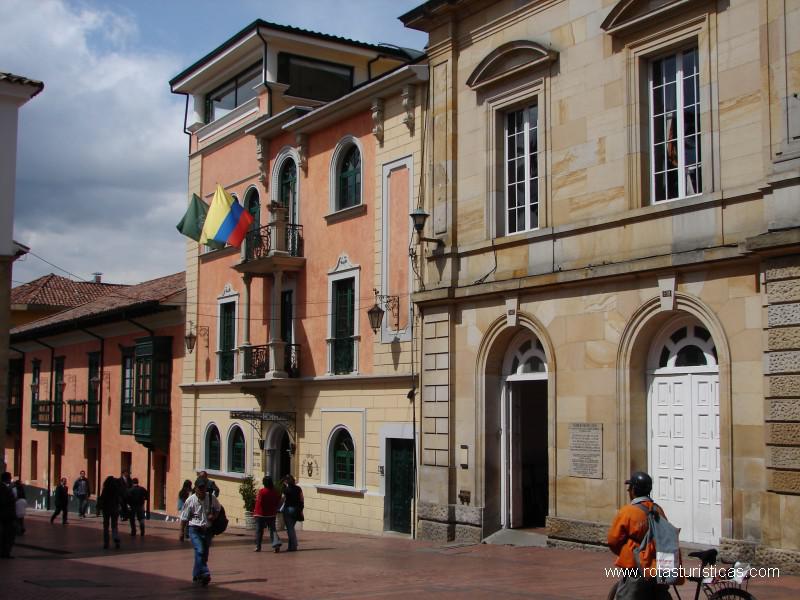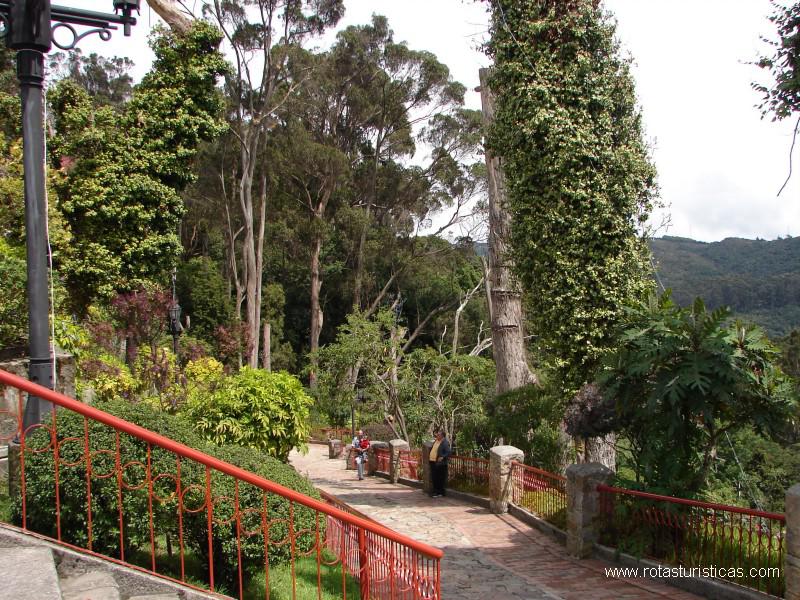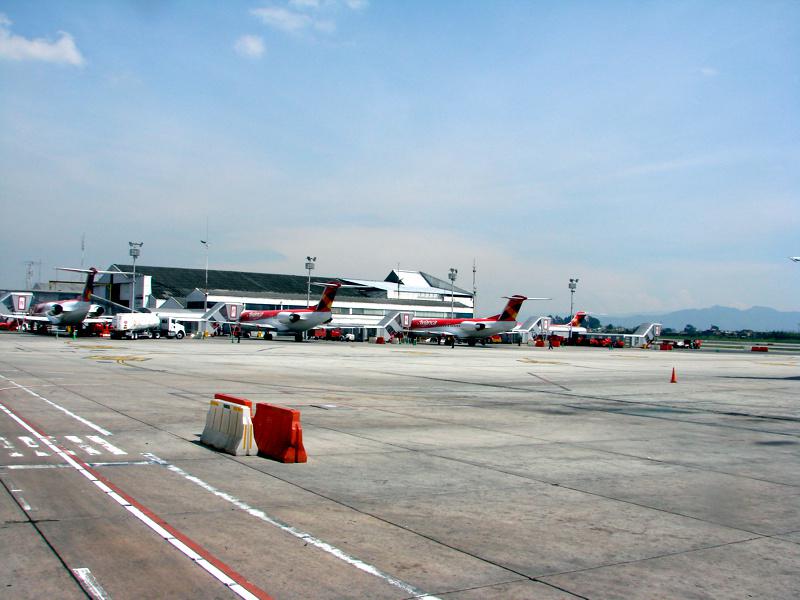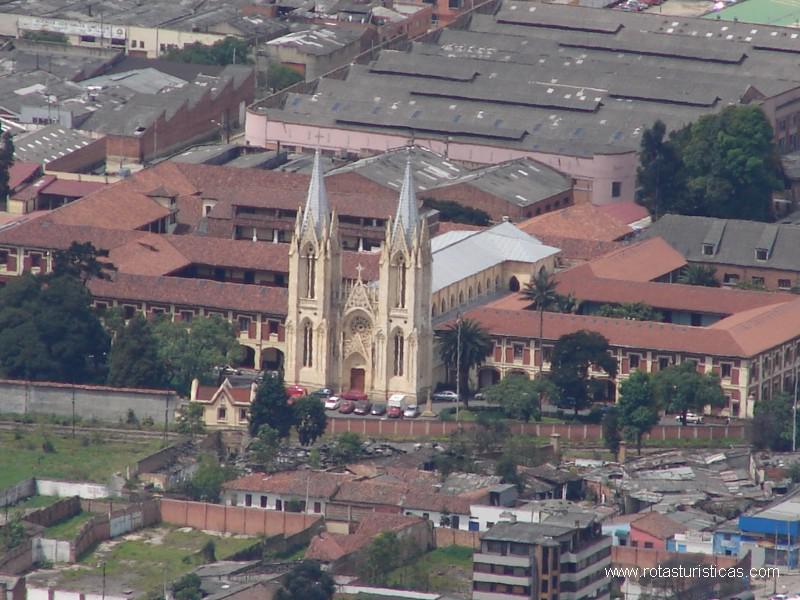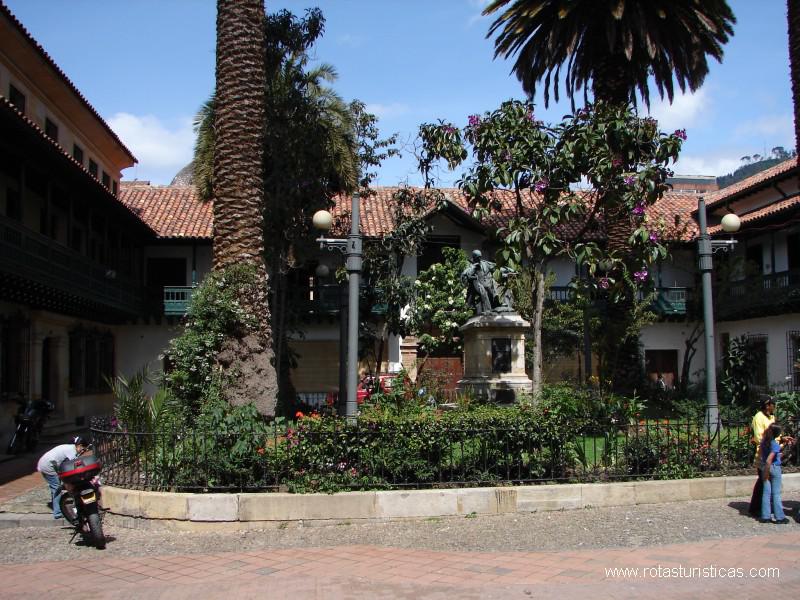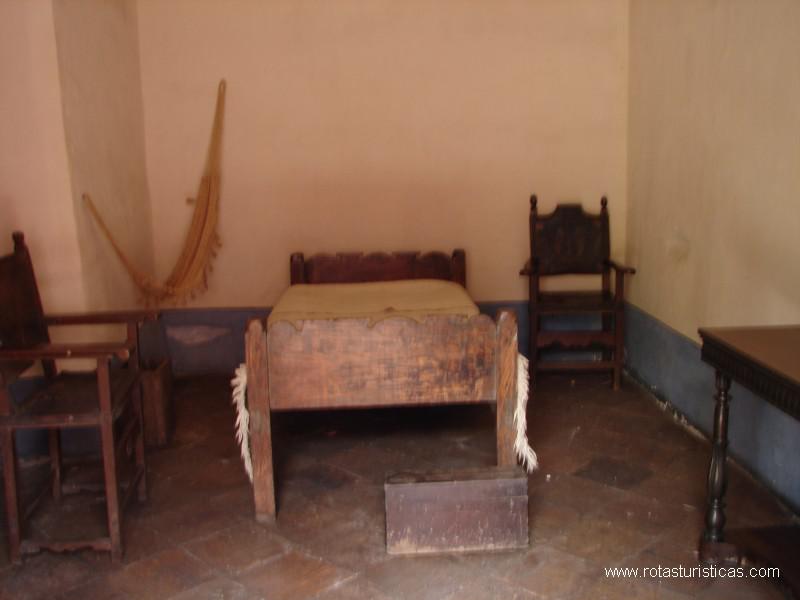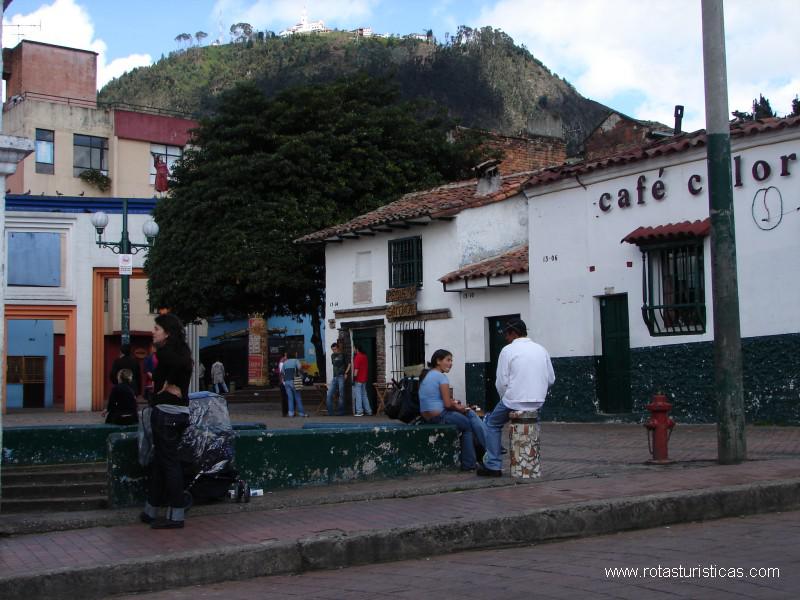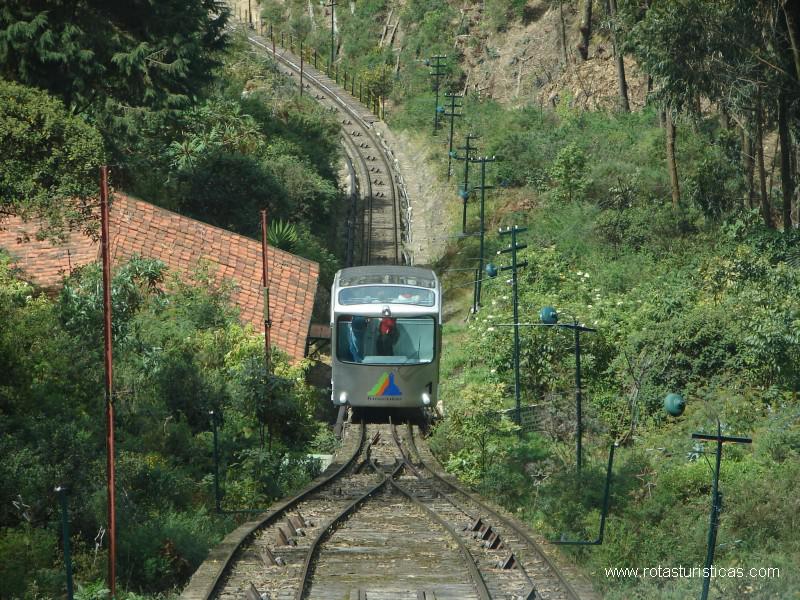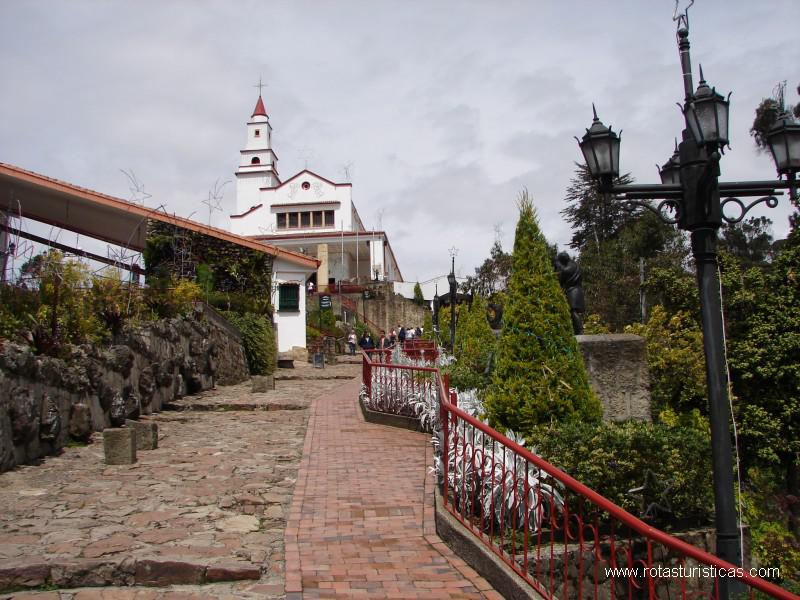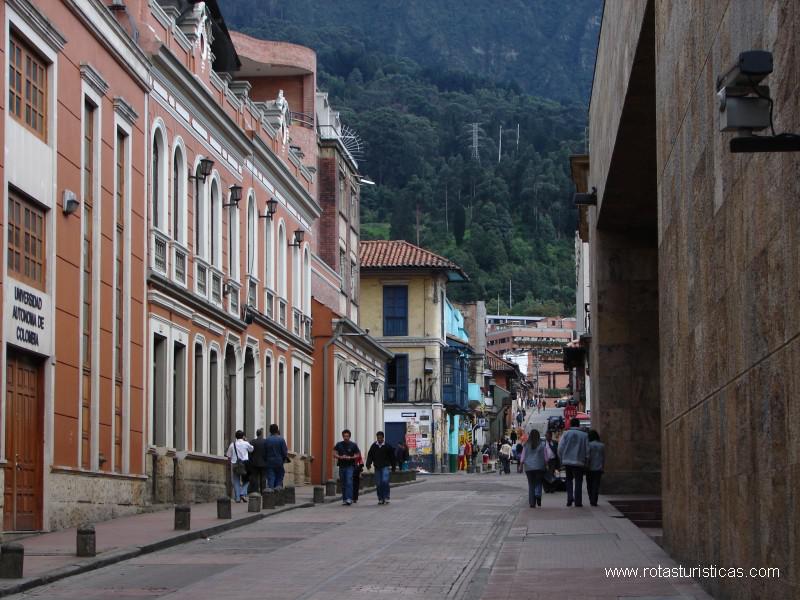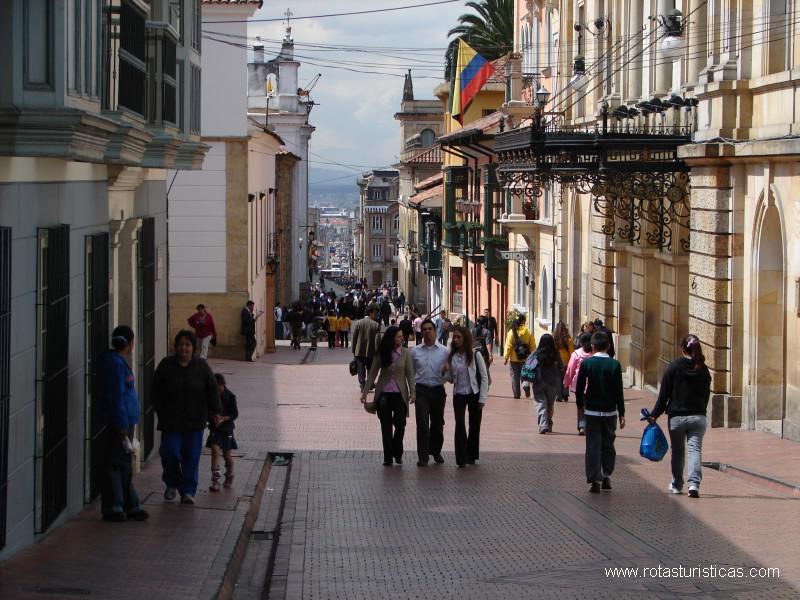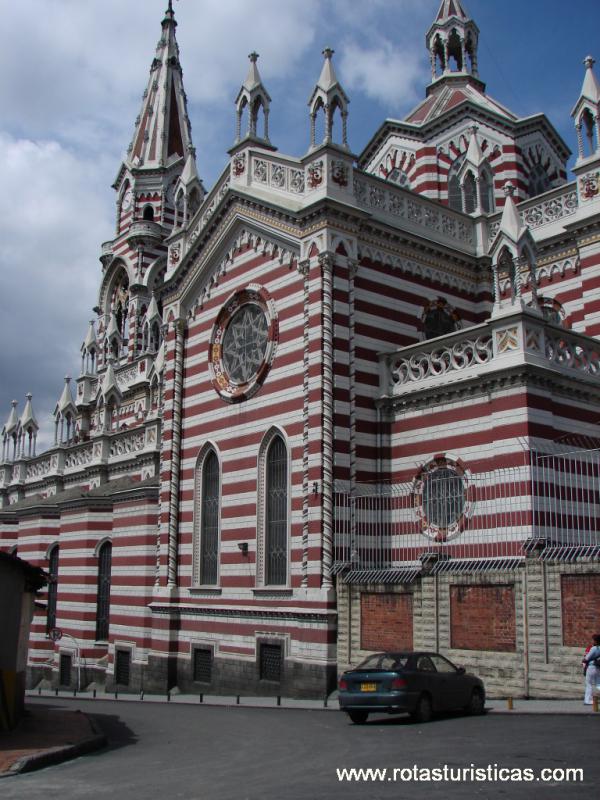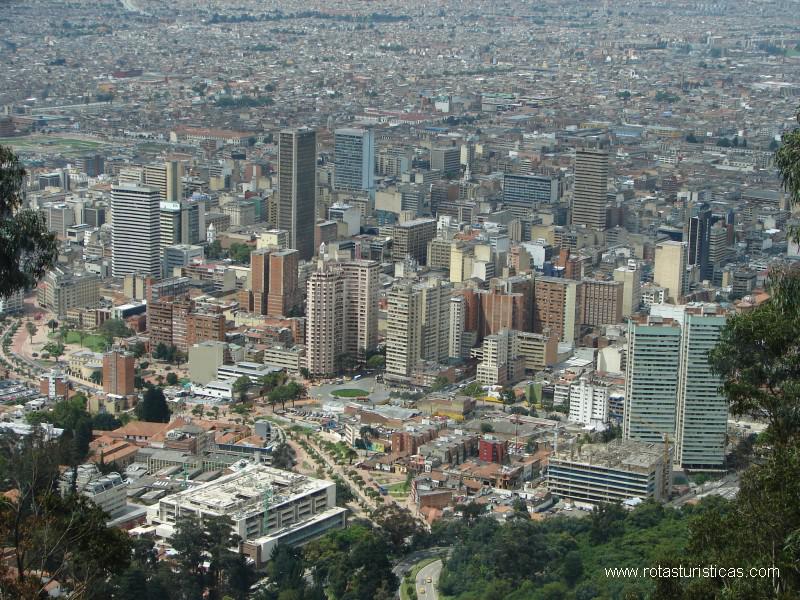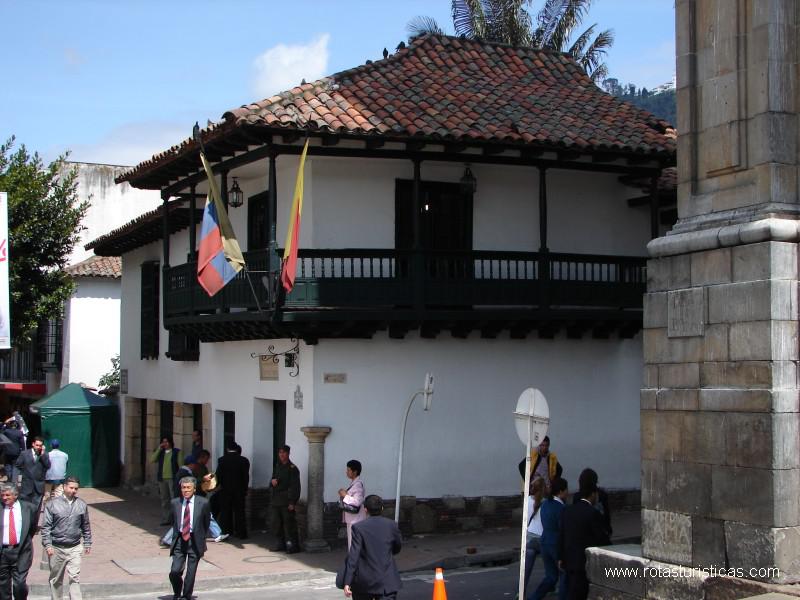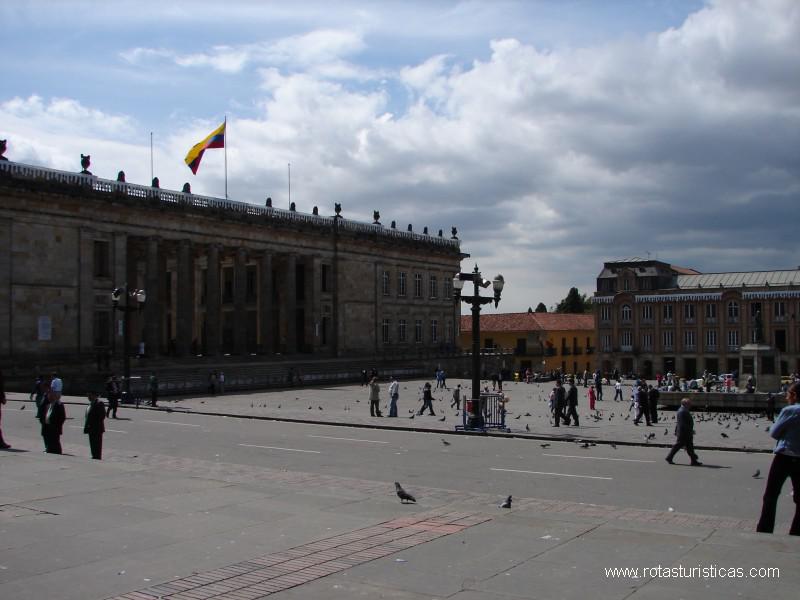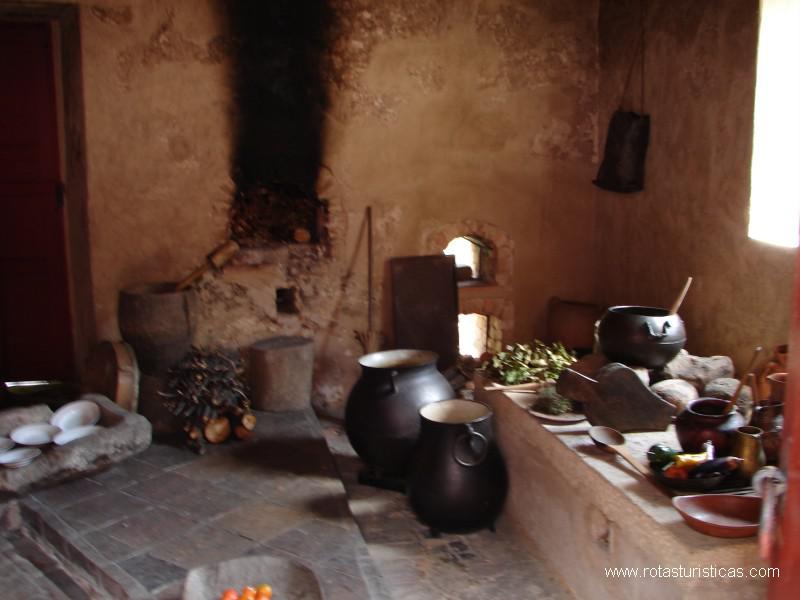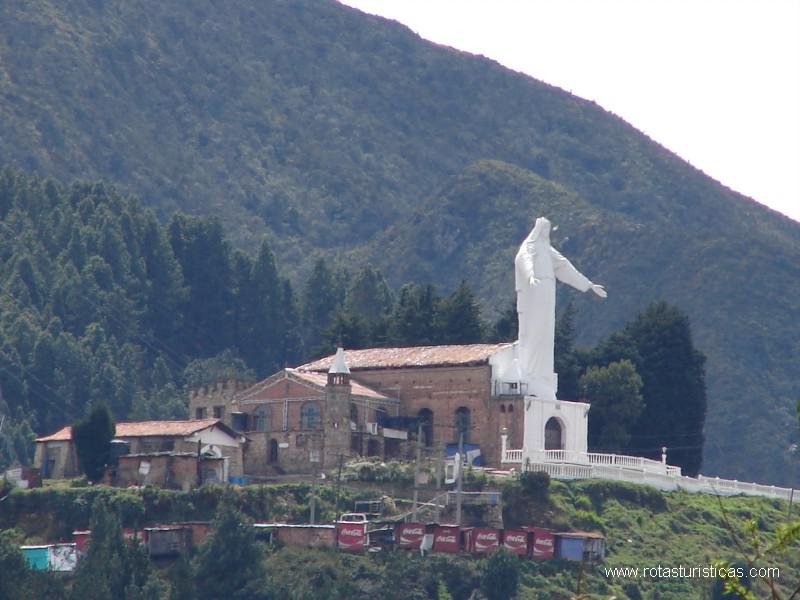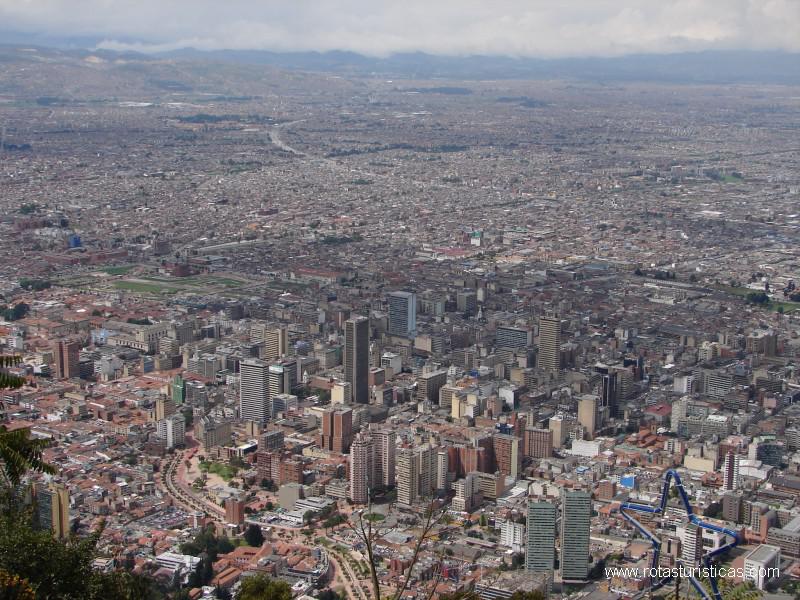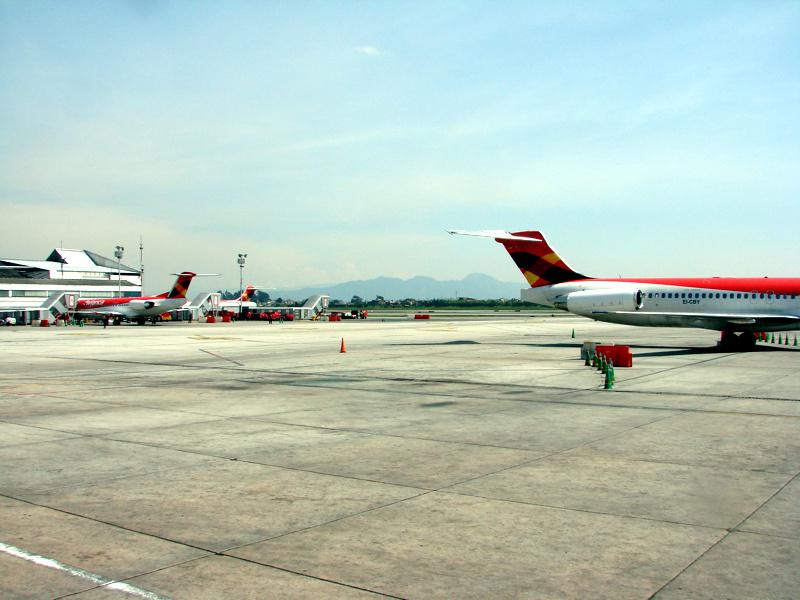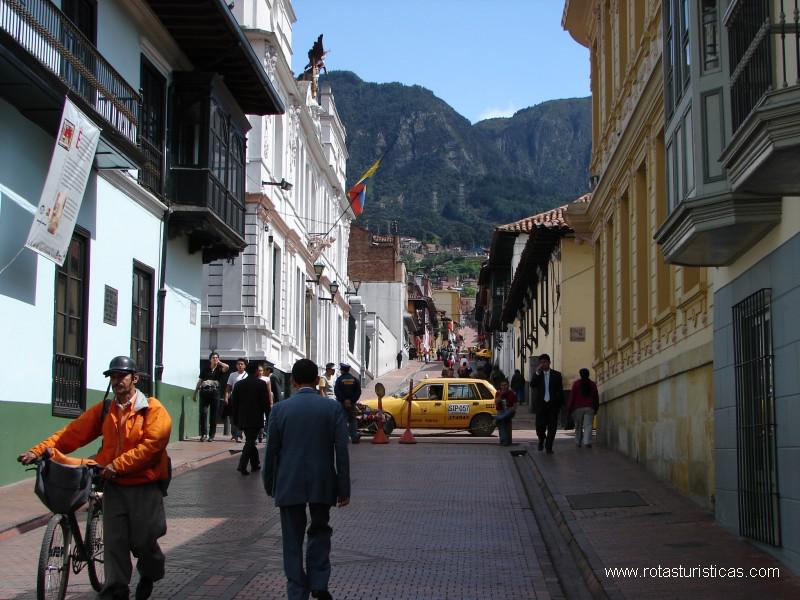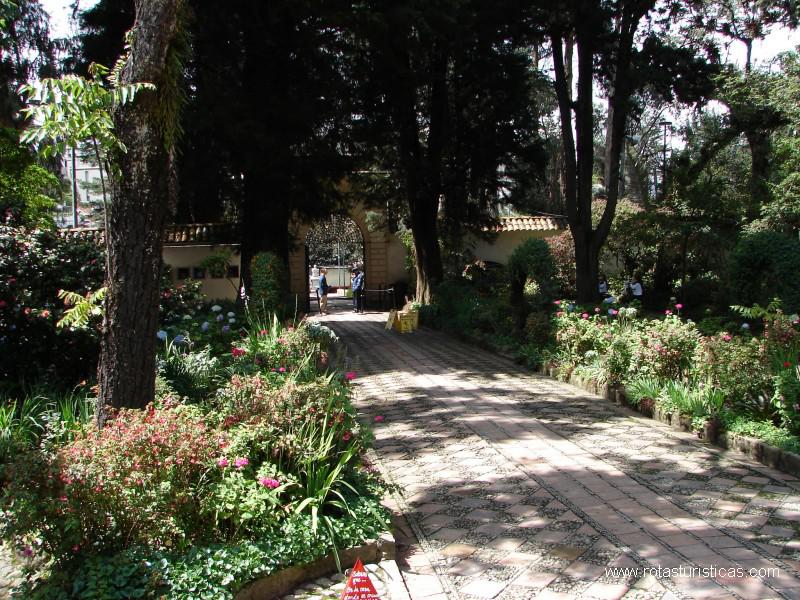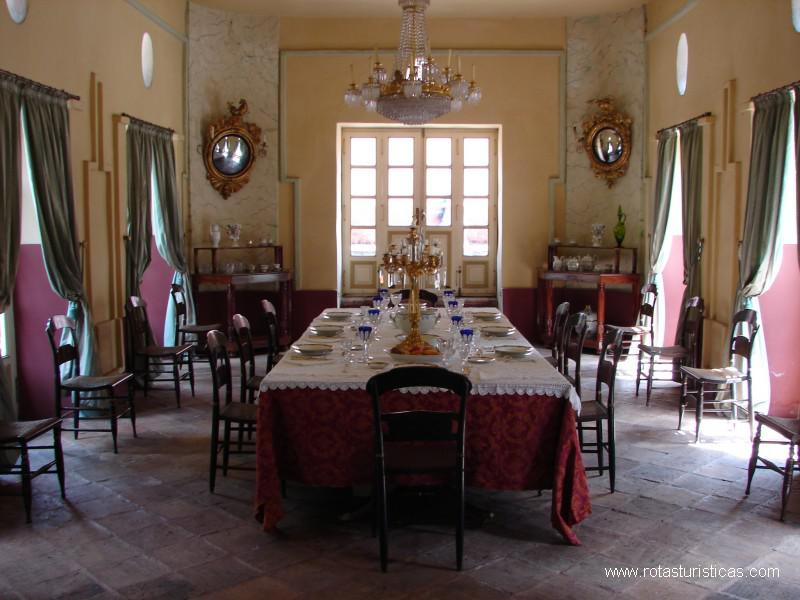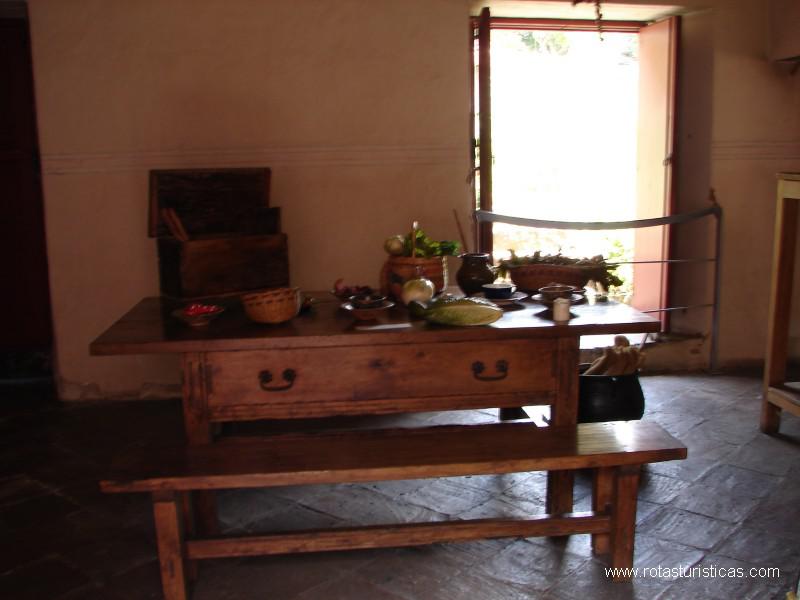Pictures of: Bogota
Location map
Airports
Hotels and other Accommodation
Golf Courses
What to visit
Where to Eat
Where to have fun
Consulates & Embassies
World Nomads
The Travel Insurance with the largest coverage

The Travel Insurance with the largest coverage

Bogota
Initially called Santa Fe de Bogotá founded in 1538, the name was shortened to Bogota after the independence of Spain in 1824 until recently, the original name was reestablished as Santa Fe de Bogota.
In 1717 it became the capital of the Spanish colony of New Granada and even after the independence of Spain, was the capital of the country.
Until the mid-1900s, the city was very provincial, bureaucratic government house and intellectual activities. The main industries are breweries, woolen fabrics, and candle making.
Bogota, is the capital and largest city of Colombia and also designated by the national constitution as the capital of the department of Cundinamarca, although the city of Bogota is now an independent district of the capital and does not belong administratively to Cundinamarca.
Due to its remoteness from the sea, it was not immediately obvious that this city would become the capital of Colombia. The plateau was the indigenous zone of the Muisca Indians, an agricultural community, and turned to an abundant source of colonial labor.
In 1717 it became the capital of the Spanish colony of New Granada and even after the independence of Spain, was the capital of the country.
Until the mid-1900s, the city was very provincial, bureaucratic government house and intellectual activities. The main industries are breweries, woolen fabrics, and candle making.
Bogota, is the capital and largest city of Colombia and also designated by the national constitution as the capital of the department of Cundinamarca, although the city of Bogota is now an independent district of the capital and does not belong administratively to Cundinamarca.
Due to its remoteness from the sea, it was not immediately obvious that this city would become the capital of Colombia. The plateau was the indigenous zone of the Muisca Indians, an agricultural community, and turned to an abundant source of colonial labor.
Tourism
The past and present blend into this metropolis to offer its visitors varied artistic expressions, which include museum exhibitions, dance, theater, music and splendid cuisine.
Since ancient times, Bogota has offered a rich socio-cultural context, which is the product of the convergence of contemporary and ancestral cultures of Colombia. As a result of this convergence, visitors will find an ancestral past represented in the architecture and historical elements preserved in their museums, as well as a gift full of life.
The city always surprises its visitors. Each corner offers something to see and do.
58 museums
62 art galleries
45 theaters on stage
more than 40 cinemas
161 national monuments
75 large sports parks and attractions
44 craft stores
28 Churches
1 Cathedral in the historic center of Bogota
33 libraries
94 shopping centers
62 convention centers
25 universities
In Bogota you find theater, concerts, lyrical arts, movies, classical ballet, contemporary dance, and outdoor events to satisfy every taste.
Bogotá is also home to artistic expressions outdoors.
Immense and varied cultural offer of Bogota makes it a destination on an equal footing with other capitals of the world
Bogota's intangible heritage, represented in the customs and expressions of a multi-ethnic population, is complemented by enclosed spaces where culture finds itself, as if time had stopped. Many memories are embodied in 17th and 18th century churches, religious and pagan pilgrimage sites, and architecturally valuable buildings.
Visitors to Bogotá are surprised by the famous Salt Cathedral in Zipaquira, Monserrate Peak, Teatro Colón, and a myriad of colonial houses in the neighborhood of La Candelaria that have remained practically intact since the days when the city was small and its customs were provincial.
Since ancient times, Bogota has offered a rich socio-cultural context, which is the product of the convergence of contemporary and ancestral cultures of Colombia. As a result of this convergence, visitors will find an ancestral past represented in the architecture and historical elements preserved in their museums, as well as a gift full of life.
The city always surprises its visitors. Each corner offers something to see and do.
58 museums
62 art galleries
45 theaters on stage
more than 40 cinemas
161 national monuments
75 large sports parks and attractions
44 craft stores
28 Churches
1 Cathedral in the historic center of Bogota
33 libraries
94 shopping centers
62 convention centers
25 universities
In Bogota you find theater, concerts, lyrical arts, movies, classical ballet, contemporary dance, and outdoor events to satisfy every taste.
Bogotá is also home to artistic expressions outdoors.
Immense and varied cultural offer of Bogota makes it a destination on an equal footing with other capitals of the world
Bogota's intangible heritage, represented in the customs and expressions of a multi-ethnic population, is complemented by enclosed spaces where culture finds itself, as if time had stopped. Many memories are embodied in 17th and 18th century churches, religious and pagan pilgrimage sites, and architecturally valuable buildings.
Visitors to Bogotá are surprised by the famous Salt Cathedral in Zipaquira, Monserrate Peak, Teatro Colón, and a myriad of colonial houses in the neighborhood of La Candelaria that have remained practically intact since the days when the city was small and its customs were provincial.
Gastronomy
Tourists have many options to savor great food in the different specialized areas of the capital.
The cuisine in Bogotá has a mix of its origins and responds to the convergence of different ethnic factors. There is not a single Colombian gastronomy, but several regional gastronomy. Each region has its own specialties. Therefore, in the gastronomy, Indian and Spanish ingredients come together through Spanish, African and Arabic cooking techniques.
The main elements of the Colombian diet are tubers, especially potatoes and cassava, accompanied with meat or fish. Some of the most consumed whole grains are rice and corn, and from corn and wheat, their flours are widely used.
The country has an incredible variety of fruits. In addition, many of the fruits considered exotic are common in Colombian forests and fields. The climate and geography also favor a wide variety of crops, as well as an important variety of fish species from both rivers and the sea.
Thus, Bogota turns out to be a cosmopolitan city in the gastronomy field. Therefore, in addition to restaurants specializing in traditional "Bogotan", there are also restaurants that offer food from other Colombian regions or cuisines from different countries and regions of the world. In addition, there are restaurants for all budgets.
The cuisine in Bogotá has a mix of its origins and responds to the convergence of different ethnic factors. There is not a single Colombian gastronomy, but several regional gastronomy. Each region has its own specialties. Therefore, in the gastronomy, Indian and Spanish ingredients come together through Spanish, African and Arabic cooking techniques.
The main elements of the Colombian diet are tubers, especially potatoes and cassava, accompanied with meat or fish. Some of the most consumed whole grains are rice and corn, and from corn and wheat, their flours are widely used.
The country has an incredible variety of fruits. In addition, many of the fruits considered exotic are common in Colombian forests and fields. The climate and geography also favor a wide variety of crops, as well as an important variety of fish species from both rivers and the sea.
Thus, Bogota turns out to be a cosmopolitan city in the gastronomy field. Therefore, in addition to restaurants specializing in traditional "Bogotan", there are also restaurants that offer food from other Colombian regions or cuisines from different countries and regions of the world. In addition, there are restaurants for all budgets.
Weather
Bogotá has a Mediterranean climate with hot, dry summers and mild winters.
Throughout the year, the temperature typically ranges from 7 ° C to 19 ° C and rarely below 2 ° C or above 22 ° C.
The hot season runs from December 27 to March 27, with an average daily high temperature above 19 ° C.
The cold season runs from June 25 to August 20, with an average daily high temperature below 18 ° C.
Precipitation varies throughout the year. Rainfall is usually at the beginning of May and less likely in mid-January.
Throughout the year, the most common forms of precipitation are drizzle, lightning and moderate rainfall.
Throughout the year, the temperature typically ranges from 7 ° C to 19 ° C and rarely below 2 ° C or above 22 ° C.
The hot season runs from December 27 to March 27, with an average daily high temperature above 19 ° C.
The cold season runs from June 25 to August 20, with an average daily high temperature below 18 ° C.
Precipitation varies throughout the year. Rainfall is usually at the beginning of May and less likely in mid-January.
Throughout the year, the most common forms of precipitation are drizzle, lightning and moderate rainfall.
Other tourist destinations in:
Colombia
Colombia
Other world tourist destinations
Why to book with BOOK HOTEL OPORTO
The best prices
Our partnerships with the world´s largest operators offer research on the best market prices.
More options
At Rotas Turisticos you can book the hotel, buy the air ticket, book the transfer from the airport to the hotel and vice versa, book the local excursions, rent the car, take travel insurance and consult the places to visit and where to go.
Holiday Tips & Destinations
Hundreds of holiday destinations with all the options that allow you to easily choose the destination that best suits your dream vacation.
BOOK HOTEL OPORTO
Links

